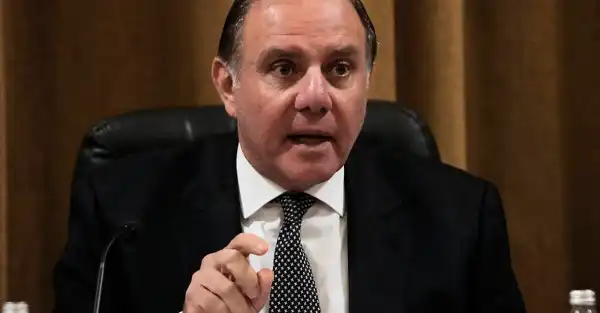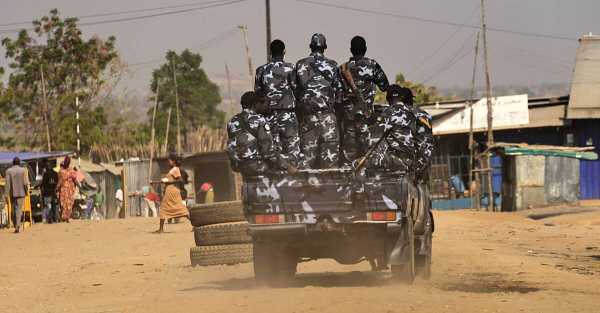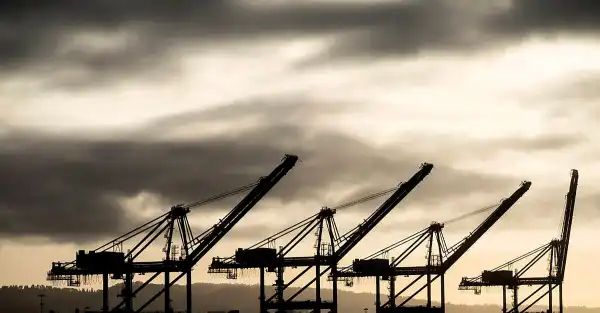
On the 24th anniversary of the withdrawal of the Serbian military from Kosovo, Prime Minister Albin Kurti reiterated that the only way to ensure peace in the country and with neighbouring Serbia is to ensure the removal of criminal gangs in the north.
The situation in the Serb majority north of Kosovo has been tense for several weeks after local Serbs, who do not recognise Kosovo’s independence from Serbia, protested against recently elected ethnic Albanian mayors entering municipal buildings to start work. The protests escalated into violence with some 30 NATO troops injured, plus journalists, police, and protestors.
“The way forward for de-escalation of the situation in the north means the immediate stop of violence by criminal gangs against the police, NATO, journalists and mayors. In accordance with the security situation, with the removal of these gangs and their arrest, the police presence could be reduced proportionately,” he said at the Vetevendosje Movement assembly meeting.
Pristina has carried out multiple police operations in recent months to bust drug trafficking, arms smuggling, and cryptocurrency mining operations taking place in the region.
He added that the cessation of criminal activity can be followed by dialogue, including the full implementation of the February Brussels agreement and the March Ohrid agreement.
“We need a balanced and fair sequencing of the implementation of the basic agreement,” he added.
Pristina maintains that Serbia has refused to implement many of the provisions previously agreed on through EU-backed dialogue. These include standing in the way of Kosovo’s membership to international organisations, lobbying for its non-recognition as a sovereign state, and interfering in Kosovo elections.
Meanwhile, Serbia insists that Kosovo implement a 2013 provision to establish the Association of Serbian Municipalities, which Kosovo’s constitutional court ruled against in 2015.
Kurti has repeatedly stated he is in favour of an association similar to the Croatian model. Still, he will not accept anything unconstitutional or that risks a situation like Republika Srpska in Bosnia and Herzegovina.
The EU and US continue to pressure Pristina to create the association, while there has been no public insistence for Serbia to fulfil its own violated provisions. Meanwhile, in Serbia, some 6000 ethnic Albanian Serbian citizens in the Presevo Valley area have been illegally removed from the civil registry leaving them unable to vote, access healthcare or education, or even buy and sell property.
When asked by EURACTIV in 2022 about the situation in southern Serbia, the Commission said it was “aware”.
On the topic of the recent elections in the north, Kurti said he understands the elected mayors have received few votes but the Serbian community should have participated in the vote, adding, “elections must be free, open, without fear, without threats, and without criminal gangs.”
Serbs resigned en masse from all state institutions including government and police in late 2022 in protest over some of Pristina’s policies. The subsequent election saw the lowest turnout ever of less than 4% following pressure and calls from Belgrade for Serbs to abandon their vote.
“We all remember very well that on November 5 of last year in the north there was an attempt to collapse our state system when the collective resignation of 547 policemen, four mayors, prosecutors and judges and ten deputies in the Assembly of Kosovo. This attempt to destroy our institutional system of our democratic Republic in the north of Kosovo failed”, Kurti said.
He added that the elections were held in line with the constitution, and due to the presence of individuals threatening local Serbs not to take part in or vote in elections, the process of special police units in the north was necessary.
“We are forced to have the special unit because of criminal groups and violent extremists. The buildings belong to the Republic and cannot be separated for operation according to ethnicity. There is no public government building where only one ethnic group can enter”, said Kurti.
The 1998-1999 war between Kosovo and Serbia saw mass ethnic cleansing efforts on the part of Belgrade, resulting in over 1 million displaced, 10,000 killed, more than 5000 missing and some 20,000 rapes at the hands of Serb forces. NATO led a bombing campaign to end the atrocities, with then-NATO Secretary-General Javier Solana issuing the order to halt the bombing on 10 June 1999.
The Kumanovo Agreement was signed on 9 June 1999 and came into force on 11 June.
Kosovo is home to several Serb-majority areas. While there are four in the north, there are also Gracanica and several enclaves in the Gjilan area. Serbs here live peacefully alongside Albanians, and there have been no protests or similar scenes of unrest in these more southern areas.
But amid the troubled north sits the Trepca Mine complex, which is home to at least 60.5 million tonnes of ore and millions of tonnes of lead, zinc, and silver. The two governments have long wrestled over who controls the mines with Serbia rejecting Kosovo’s repeated attempts to take the mines over.
Kosovo politicians have long insisted that the association will result in a Republika Srpska-type structure, as in Bosnia and Herzegovina, and will pave the way for including the north, and its lucrative mines, into Serbia.
(Alice Taylor | Exit.al)
Read more with EURACTIV

Demonstrators to block Serbia if demands are not met
Source: euractiv.com



